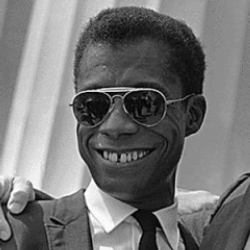Brendan I. Koerner Quotations
-
-
-
-
-
-
-
-
Among Quotes
Tarot cards likely originated in northern Italy during the late 14th or early 15th century. The oldest surviving set, known as the Visconti-Sforza deck, was created for the Duke of Milan's family around 1440. The cards were used to play a bridge-like game known as tarocchi, popular at the time among nobles and other leisure lovers.
-
-
Calculate Quotes
The hazards posed by Near-Earth Asteroids are assessed by Sentry, a computer system developed by the Near-Earth Objects Group at NASA's Jet Propulsion Laboratory in Pasadena, Calif. The software factors together a cosmic rock's coordinates, distance, velocity, and gravitational influences to calculate its trajectory.
-
Against Quotes
A small-time hoodlum who had spent most of the 1960s at San Quentin State Prison in California, the 30-year-old Bryant claimed that he hijacked Flight 97 under orders from his higher-ups in the Black Panther Party; he said his mission was to arrange for the purchase of bazookas to aid the organization's struggle against oppression.
-
Committed Quotes
Barkley was the first of many American skyjackers whose primary interest was money; by 1972, the majority of the nation's hijackings would involve demands for ransom. Barkley himself was declared incompetent to stand trial in November 1971, at which point he was committed to a psychiatric hospital in Georgia.
-
-
-
Attention Quotes
The first outbreak of America's 11-year skyjacking epidemic occurred in the summer of 1961, when four planes were seized in the nation's airspace. The last of these incidents, involving 16-year-old Cody Bearden and his father, Leon, is the one that finally forced the federal government to pay attention to the escalating crisis.
-
-
Above Quotes
Monorail tracks are prefabricated and can be erected relatively quickly: Simply dig a hole every 120 feet or so, plop down a column, and lift the track into place. Because the systems operate above traffic, collisions with errant motorists are never an issue. The trains are automated, saving millions in labor costs in the long run.
-
-
Convinced Quotes
A surprising number of American skyjackers were not yet old enough to drink or sometimes even drive. These adolescents were generally inept at planning their crimes, and few of their capers met with any success; most seemed to end within moments of starting, usually after a fatherly pilot convinced the nervous teen to hand over his gun.
-
-
-
-
-
British Quotes
Mystical groups such as the Theosophical Society and the Rosicrucians turned tarot into an American fad during the early 1900s. Many American tarot practitioners use a set of cards known as the Waite-Smith deck, created in 1909 by A.E. Waite, a British member of the Hermetic Order of the Golden Dawn, and the artist Pamela Colman Smith.
-
Awesome Quotes
Spike optioned my first book, 'Now the Hell Will Start,' and he trusted me to write the screenplay, too. That was an awesome learning experience - I grew up watching Spike's movies, and here he was giving me handwritten notes about structure and dialogue. His feedback taught me so much about how to craft a cinematic narrative.
-
-
Contend Quotes
A duped newspaper or magazine could contend that a fiction-spouting journalist obtained part of his salary via fraud, and use a criminal proceeding to try and recoup that money. Given the profession's notoriously low wages, however, it's probably not worth the publicity headache and legal fees. No news organization has ever pursued such a case.
-
-





























